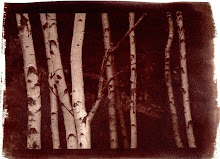
The sabbat name Ostara comes from the Germanic goddess Eostre, a goddess of prosperity and growth. Long forgotten for centuries and no longer celebrated nor honored with her earlier joyous feast days even as far back as the eighth century, she is, however, the namesake for the Christian festival of Easter which was named for the Anglo-Saxon month which had itself been named in honor of Eostre. This was Eostur-Monath, which is roughly our present-day April. And the name Ostara itself comes from the old High German adverb "ostar" which means "expresses movement towards the rising sun."
In early pagan worship of Eostre, hare was the typical dish served, especially in Saxon and British worship of her, as well as in Northern Europe. While little is known about Eostre, it is believed that her golden lights, as goddess of the dawn and the coming of the sun, were carried by hares. She represented sexuality and fecundity, which is not only what spring itself represents, but also what we also think of when we think of hares. And in ancient times, the sabbat of Ostara was a holy day, a day of light, a day that brought joy, blessings and new life to the world. Bonfires were lit and the fresh water drawn on Ostara morning was considered holy and healing. This day, as well as the majority of its meanings and beliefs were adopted by the Christian church as the festival celebrating the resurrection of Christ.
Whether or not you choose to specifically honor the goddess Eostre, Ostara is the sabbat that heralds that wonderful time of year when we all feel new and reborn, when life is fresh and the coming season of abundance offers so much hope and promise. How can that not feel fantastic?
"Ostara" by Johannes Gehrts, 1884, published 1901.













2 comments:
Hey Ho Victoria,
I have given you a blog award. Come visit & see. :)
I have also come to give you an award--must be your lucky day!
I love reading about old seasonal celebrations and folklore. I'll remember Eostre on Ostara.
http://gracefulsimplicity.blogspot.com/2010/03/beautiful-blogger.html
Post a Comment